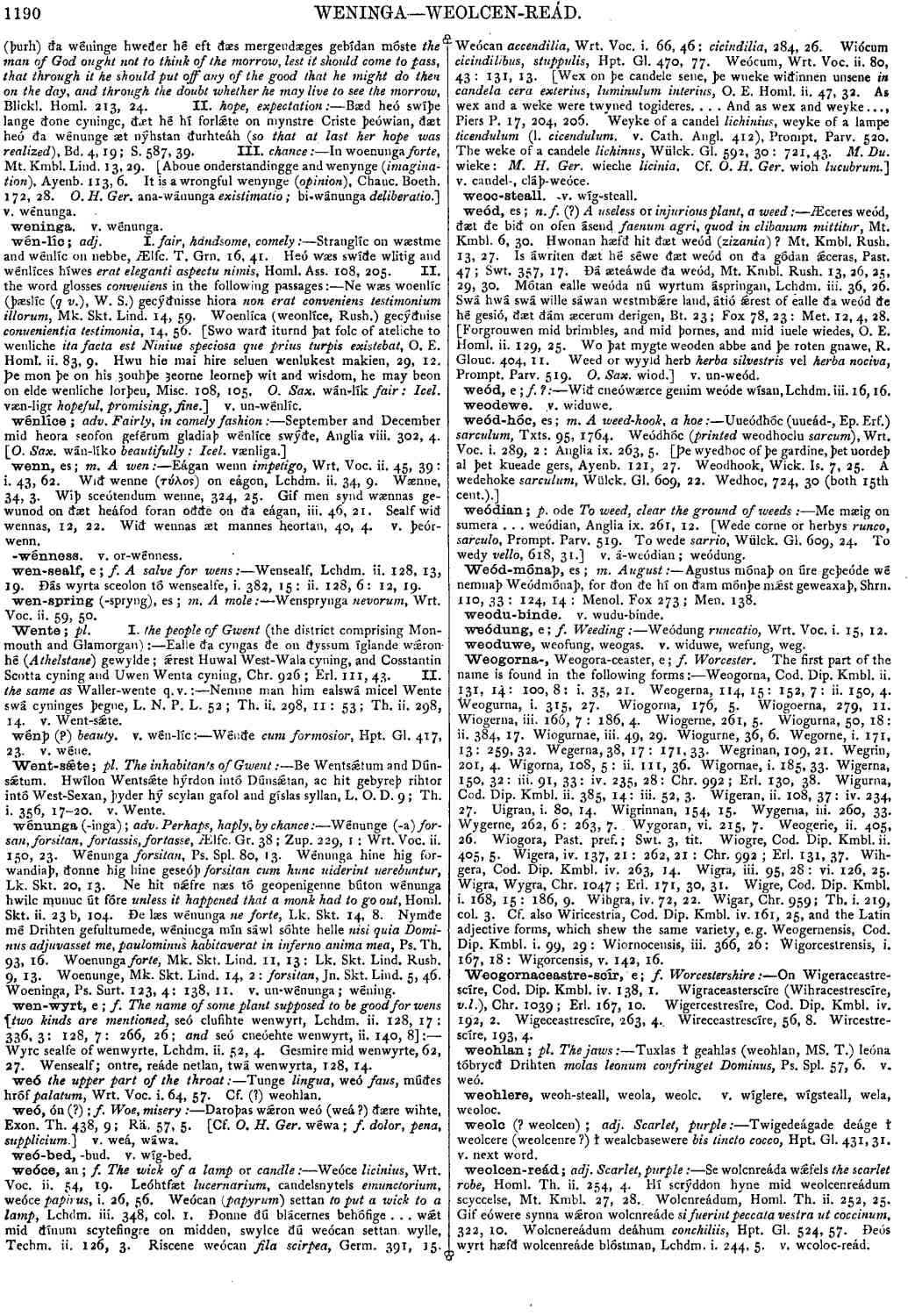wénunga
- adverb
-
Wénunge (-a)
farsan, forsitan, fortassis, fortasse,
- Ælfc. Gr. 38 ; Zup. 229, 1: Wrt. Voc. ii. 150, 23.
-
Wénunga
forsitan,
- Ps. Spl. 80, 13.
-
Wénunga hine hig for*-*wandiaþ, ðonne hig hine geseóþ
forsitan cum hunc uiderint uerebuntur,
- Lk. Skt. 20, 13.
-
Ne hit nǽfre næs tó geopenigenne búton wénunga hwilc munuc út fóre
unless it happened that a monk had to go out,
- Homl. Skt. ii. 23 b, 104.
-
Ðe læs wénunga
ne forte,
- Lk. Skt. 14, 8.
-
Nymðe mé Drihten gefultumede, wénincga mín sáwl sóhte helle
nisi quia Dominus adjuvasset me, paulominus habitaverat in inferno anima meat,
- Ps. Th. 93, 16.
-
Woenunga
forte,
- Mk. Skt. Lind. 11, 13: Lk. Skt. Lind. Rush. 9, 13.
-
Woenunge, Mk. Skt. Lind. 14, 2 :
forsitan,
- Jn. Skt. Lind. 5, 46.
-
Woeninga,
- Ps. Surt. 123, 4: 138, 11.
Bosworth, Joseph. “wénunga.” In An Anglo-Saxon Dictionary Online, edited by Thomas Northcote Toller, Christ Sean, and Ondřej Tichy. Prague: Faculty of Arts, Charles University, 2014. https://bosworthtoller.com/35097.
Checked: 0